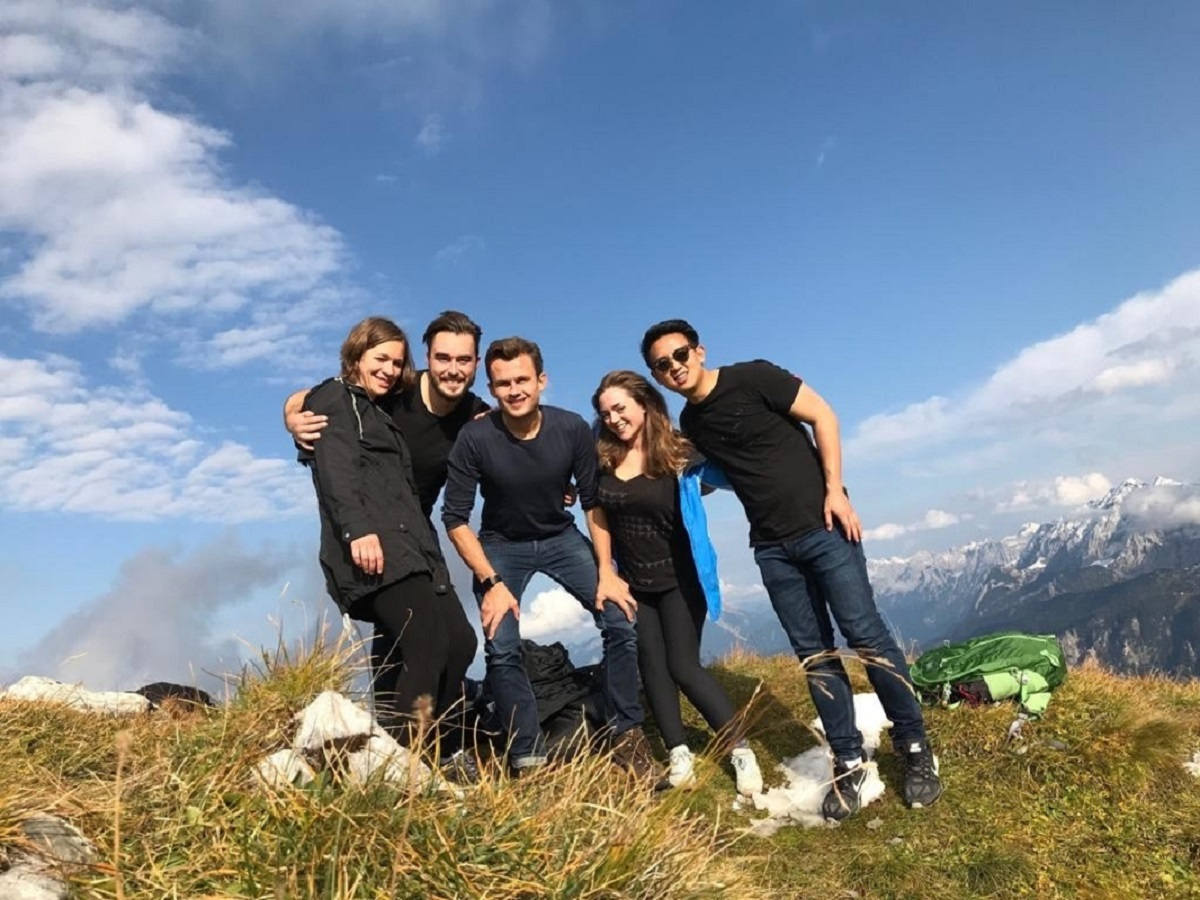"At GSOM, the concentration of talented people per square metre is off the scale" — Alexandra Bayakina on her career at Tesla and studying at GSOM
Alexandra Bayakina graduated from the Graduate School of Management at St Petersburg University (GSOM) in 2012. Having finished her studies, she moved to the Netherlands and in 2013 she started working with Tesla. Today, Alexandra holds the position of the head of the Tesla Business Analytics team in Europe. In her interview Alexandra spoke about her career path in the company, and gave a few recommendations to future master’s students.
Tell us about your work at Tesla. What do you do there?
I am running the Tesla European department of business analytics. Our main target is to help business to make data-based decisions. We are responsible for: the collecting, processing and storing of data; developing reporting systems; data analysis; and modelling. By using data, we can describe what is happening, why it is happening, and what is necessary to do to achieve the required results.
Why did you decide to apply for a job at Tesla?
I was a young professional back then, and it was very important for me to find a company that would foster my professional development. I have acquired many skills during these almost seven years at Tesla, and I continue learning every day. Of course, the mission of the company – to improve and develop the World around us – appealed a lot to me.
What was your career development at Tesla?
In September 2013, I began working at the Tesla Sales Operations department. I dealt mostly with administrative tasks related to sales and delivery of Tesla Modal S in Europe. In 2014, I became one of the first Tesla business analysts in Europe. At that time our key priority was reporting system and database development. We did it successfully, and started working on new more complicated tasks. When in 2016 I became head of the department, the team consisted of just one analyst. Today, we have a totally international team of seven specialists.
Is it difficult to manage an international team? Does cultural diversity affect work process?
My team is my pride. It is easy for us to work together, despite different nationalities. In the Netherlands it is a common practice to form teams from representatives of different countries. The corporate language of the company is English.
The cultural diversity enriches our team. We understand each other very well, spend much time together both at work and after it. The most important for me is to be sure that everybody feels comfortable working together. We learn to understand, respect and complement each other.
What do you do to motivate your team? What teambuilding strategies do you implement?
The members of my team know that we always stand for each other and pursue our common goal together. Not only do we work together a lot, but we also celebrate our success. Every year we arrange teambuilding events. Once we climbed one of the highest peaks of the German Alps, another time we had a Russian dumplings making competition. We even have a team motto – ‘Ain’t no mountain high enough’ – which is translated as ‘there is no such obstacle that we cannot overcome.
Is there any difference in creating a workflow in the Netherlands and in Russia?
Working in the Netherlands involves an international environment. It is hard for the Russians to imagine non-Russian speakers working at the ‘Russian Post’, for example. While in the Netherlands the local post service publishes vacancies in English looking for foreign professionals. Here skills are more valuable than language proficiency. There is no doubt that it is necessary to speak Dutch in public organisations, but in other companies there are no such restrictions.
Which competencies acquired in GSOM turned out to be useful in your work, and which did you have to acquire on your own?
Teamwork skills proved to be very useful. At GSOM students are often formed into teams randomly to do group assignments. It was essential to establish contact with all the members of your team. Also, it was rather hard to study at GSOM, which helped me to develop determination and a creative approach to solving problems.
What I did on my own was to study programming. It is very relevant in every sphere now. If you want to become a business analyst, basic Excel skills are not enough. You have to learn programming languages to work with data, such as SQL, Python or R, and of course knowing data visualisation packages such as Tableau or Power BI are vital. However, as far as I know there is a programme at GSOM that allows students to master all the necessary data analysis tools [master’s programme Master in Business Analytics and Big Data – Editor’s note].
What is the most valuable skill that you gained at SPbU?
The most valuable skill is people, my friends. At GSOM the concentration of talented people per square metre is off the scale. Now, when I watch live streams of the project #StayHome with GSOM Family I am always impressed and happy.



